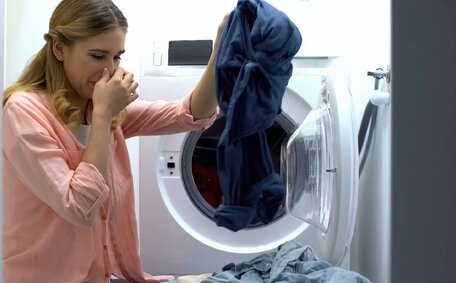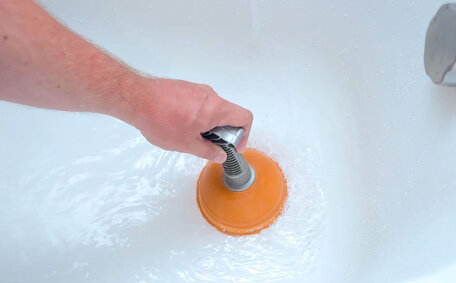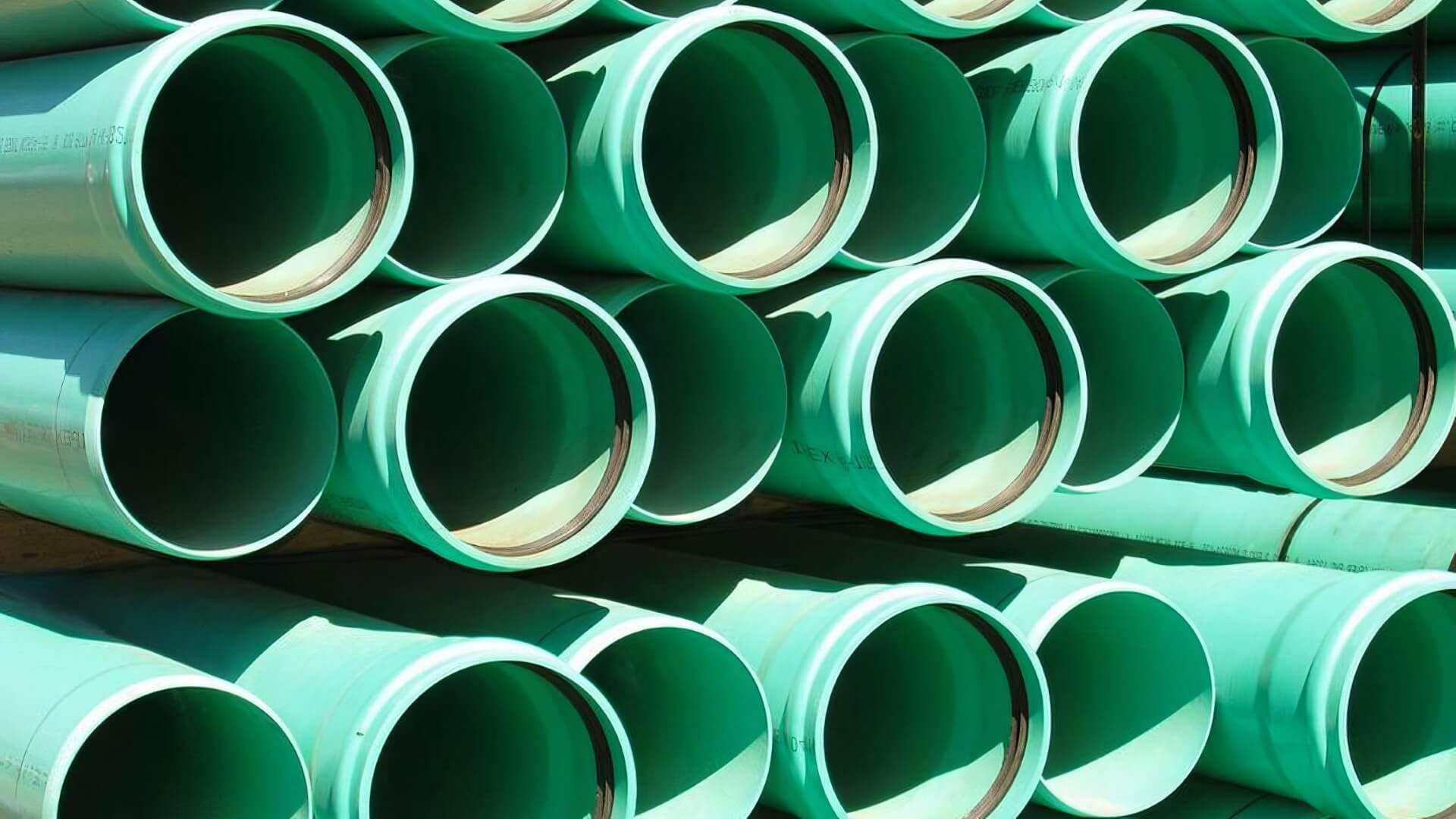Introduction to Chemical Drain Cleaners
Chemical drain cleaners are products designed to clear clogged drains by breaking down and dissolving blockages. They typically contain harsh chemicals like sodium hydroxide, sulfuric acid, and bleach that can eat through organic material as well as hair, grease, and other debris that accumulates in pipes.
These caustic drain cleaners are commonly poured directly into drains in liquid, powder, or gel form. As they work to dissolve clogs, they generate heat and release toxic fumes. While chemical drain cleaners may provide a quick fix for blocked drains, they can also damage plumbing and pose safety hazards if not used carefully.
In this article, we’ll take a deeper look at some of the main concerns surrounding chemical drain cleaners. We’ll discuss the potential risks they present to your home’s plumbing, to your health, and to the environment. We’ll also cover some safer, greener alternatives you can try for unclogging drains.
Types of Chemical Drain Cleaners
There are a few main types of chemical drain cleaners available:
- Caustic soda (lye) cleaners - These contain sodium hydroxide, which breaks down organic matter but can also damage metal pipes. Lye drain cleaners come in liquid and crystal/powder forms.
- Sulfuric acid cleaners - Contain sulfuric acid and are even more corrosive than lye cleaners. Require careful handling as they can cause chemical burns.
- Nitric acid cleaners - Contain nitric acid, which is highly corrosive. Generally only used in commercial/industrial settings.
- Bleach and peroxide cleaners - Contain bleach or hydrogen peroxide as active ingredients. Less corrosive but may still harm pipes.
Most chemical drain cleaners are liquids that can be poured directly down drains. They work quickly to dissolve blockages but should be handled with caution as they contain caustic, potentially dangerous chemicals.
How Chemical Drain Cleaners Work
Chemical drain cleaners work by using corrosive chemicals to break down and dissolve clogs. When poured down a blocked drain, these chemicals react with the organic material, grease, hair, and other debris causing the blockage.
Specifically, caustic soda (lye) drain cleaners contain sodium hydroxide, which generates heat as it dissolves clogs. This heat helps liquefy grease while the chemical action breaks down hair, food, soap residue, and other gunk. Sulfuric acid cleaners work similarly but are even more corrosive.
As they react, the chemicals release toxic fumes. This is why caution should be used when handling drain cleaners, avoiding inhaling fumes, and never mixing products. The corrosive ingredients also eat away at the metal or plastic pipes as they eliminate clogs.
Repeated use of chemical drain cleaners can damage or corrode drain pipes over time. The heat and chemical reactions are indiscriminate, so while they dissolve the intended clog, they also degrade pipe integrity and performance.
The chemicals remain in your drainage system even after washing the clog away. This residual caustic material can continue eroding pipes and may eventually penetrate into groundwater if released from cracked pipes.
So in short, the harsh chemicals in drain cleaners work by dissolving clogs through corrosive chemical reactions but may also weaken or damage your pipes in the process.
Why It’s Important to Keep Drains Clear
Keeping your drains clear and free of blockages is essential to maintain proper plumbing function and prevent major issues in your home or business. Here are some key reasons why regular drain maintenance is so important:
- Avoids backups and flooding – Clogged drains can lead to wastewater backing up into sinks, tubs, and toilets. This backup can cause extensive water damage, mould growth, and flooding.
- Prevents foul odours – Blocked drains trap wastewater that decomposes and emits foul sewer gases and odours. Keeping drains clear prevents this.
- Allows proper drainage – Drains free of debris and buildup drain wastewater effectively. Clogs slow or stop this drainage, leading to additional problems.
- Saves money – Drain repairs and replacements are expensive. Routine maintenance is far more affordable than emergency blockage removal.
- Extends plumbing lifespan – Regular drain cleaning removes corrosive materials and prevents damage to pipes from clogs and backups.
Don’t wait until you have a slow-running drain or sewage backing up in your home. Don’t wait until you have a slow-running drain or sewage backing up in your home. Follow up with periodic drain cleaning to keep your plumbing working properly.
Avoid pouring fats, oils, and solids down sinks. Use drain strainers and guards to catch hair and food.
The Dangers of Chemical Drain Cleaners
Chemical drain cleaners can pose a number of health and safety risks that should be considered before use.
The fumes released from chemical drain cleaners contain toxic gases that can irritate eyes, skin, and the respiratory tract.
Exposure can cause coughing, shortness of breath, burns, and other injuries. This is especially dangerous in small, enclosed spaces like bathrooms. Proper ventilation is critical.
Ingesting or getting these caustic products on your skin can cause serious chemical burns. They may contain sodium hydroxide, sulfuric acid, bleach, lye, and other corrosive substances. Proper handling and protective equipment are a must.
Repeated use of chemical drain cleaners can corrode, weaken, and damage pipes. The intense chemical reactions that dissolve clogs also degrade pipe material and joints over time. This can lead to leaks or catastrophic pipe failures.
Chemical drain cleaners should never be mixed together, as this can produce dangerous chemical reactions and toxic fumes. Only use one product at a time, and only as directed.
The chemicals in these drain cleaners do not break down easily, and can persist in drainage pipes and eventually make their way into groundwater. Their toxicity harms the environment.
For all of these reasons, take precautions when using chemical drain cleaners. Consider trying safer alternative methods whenever possible. Only use harsh chemical cleaners as a last resort when facing extensive drain blockages.
Safer Alternatives for Drain Cleaning
While chemical drain cleaners provide a quick fix, their risks make safer alternatives worth considering. Here are some effective options for unclogging drains naturally:
Physical Drain Cleaning
Sometimes drain clogs just require some physical effort to dislodge. Using a plunger can create enough suction to loosen blockages. Insert the plunger over the drain opening and rapidly plunge up and down several times to clear the obstruction.
Drain snakes are flexible cables you feed down the drain to physically hook and extract debris. Snaking a drain grabs hair, grease, and other gunk clogging pipes.
Baking Soda and Vinegar
Combining baking soda and vinegar creates a chemical reaction that breaks up some types of clogs. Pour 1⁄2 cup baking soda down the drain followed by 1 cup heated white vinegar. Cover and let sit 15 minutes before rinsing with hot water.
The fizzing foam penetrates and pushes through gunk in pipes. Repeat if needed. Baking soda neutralises odours too.
Enzymatic Cleaners
Enzyme-based cleaners contain bacteria that feeds on and breaks down organic matter clogging drains. They are safer than caustic chemicals and work over several treatments.
Boiling Water
Pouring boiling water down the drain can melt and wash away grease clogs. Avoid splashing risks by using a funnel when pouring.
Try these chemical-free drain cleaning methods before resorting to harsher products. Your drains will thank you, and you’ll prevent plumbing damage too.
When to Call a Professional Plumber
p>p>p>p>p>p>p>p>p>
Tips for Preventing Clogs
Preventing clogged drains in the first place is better than dealing with blocked pipes and backups. Here are some tips to keep your drains flowing freely and avoid the need for harsh chemical cleaners:
Install drain screens/strainers
Fit drain screens or strainers over all sink, tub, and shower drains. These catch hair, food scraps, and other debris before it can clog pipes. Clean strainers regularly.
Limit fats, oils and grease
Avoid pouring fats, oils, and grease down drains. Allow cooked oils to cool and solidify before disposing in the trash.
Flush with hot water
Flush drains weekly by running very hot water for 30 seconds to melt grease buildup. Pouring 1⁄2 cup baking soda and vinegar down and letting it fizz for 10-15 minutes can help too.
Only flush waste meant for drains
Trash items like egg shells, coffee grounds, and fibrous produce waste in the garbage, not down the drain. This organic matter contributes to clogs.
Use enzyme cleaners
Monthly use of enzyme drain cleaners helps break down organic buildup and prevent blockages.
Professional drain cleaning
Have drains professionally inspected, cleaned, and maintained every year. Eastwood Plumbing offers reliable drain cleaning to nip problems before they worsen.
Adopting smart habits and proactive care is key to keeping drains free-flowing and avoiding clogs. Contact Eastwood Plumbing on 1300 349 338 to learn about our drain services.






